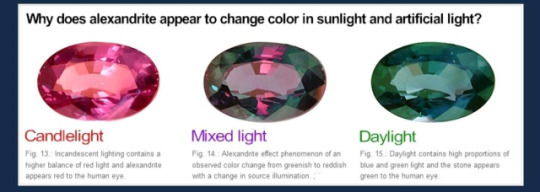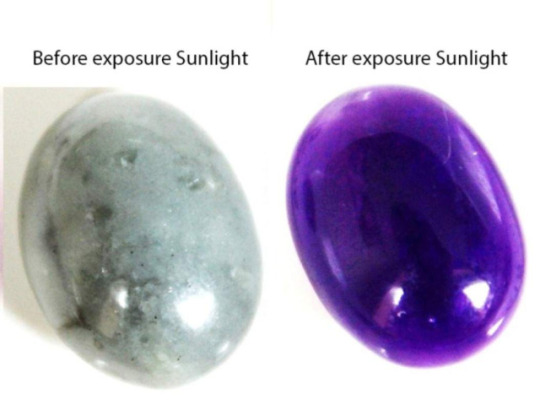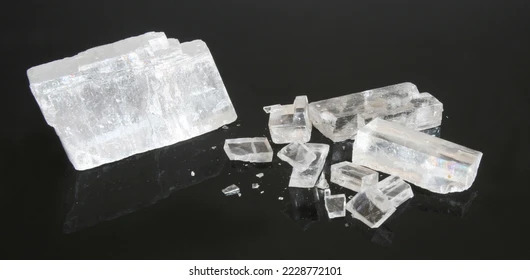#no scarcity of magic
Explore tagged Tumblr posts
Text
Time Travel Question 79: Miscellaneous III
These Questions are the result of suggestions from the previous iteration.
This category may include suggestions made too late to fall into the correct grouping.
Please add new suggestions below if you have them for future consideration.
#Time Travel#Queer History#20th Century#El Dorado Club#Berlin#1920's#The Future#24th century#Ancestral Puebloan Culture#Indigenous History#Chaco Culture#Mesa Verde#matter synthesis#Future Tech#Post Scarcity#Textile Mills#Harrapans#Textiles#History of Textiles#History of Clothes#Space Exploration#Space#Future Medicine#Georges Méliès#Stage Magic#The Grauballe Man#Bog Mummies#Canadian Prairie Cultures#1300#1st Nations History
63 notes
·
View notes
Text
Before chapter 85 I knew about the Treefrey theory but I never believed it, because why would you want to turn someone into a tree? But I thought about it and I have a theory.
The Brimhats want magic to available to everyone, but there's a limited amount of silverwood trees, thus a limited amount of wands and ink you can get from each one. Even lowballing the amount of witches to the rest of the population, it's a few thousand vs a few hundred thousand. The only way for everyone to be able to have easy access to magic would be if they were way more trees than they are now, and thus more supplies. The sacrifice of few which will support many in the future.
#witch hat atelier#wha#what if this is the real reason they kept the knowledge of magic to a few#it was just because of supply scarcity and not evil magic#i dunno on that last point it's just a theory a manga theory#if i had to describe wha's theme in one word it would be accessibility though and that does fit with it...
31 notes
·
View notes
Text
Random question I know will never be answered: Would Solas know any nature magic like the Dalish Keepers?
I know this is a weird vein to follow, but it's a good question. Sorta.
In the wider world of Thedas in regards to magic, the only people who seem to have the knowledge and understanding of nature magic are Dalish Keepers. Everyone else only uses the Elements (Ice, Fire, Lightning) and Spirit (healing, defense, calling on friendly spirit energies to do useful things). Or, you know... Blood Magic.
Clearly nature magic was an ancestral art that Dalish Keepers kept passing down through the generations. Why else would the traditions stay amongst the Dalish? And also, it adapts well to their needs whilst traveling the wilds/living their nomadic lifestyle.
But what did nature magic serve as in the Elvhenan Empire? I mean, with the Veil not causing problems, you could do so much with magic that could effect plants. Did that help with food supply? Did Elvhen farmers have their own unique brand of nature magic? How was it used in war? The Elvhen Gods constantly warred/skirmished with each other, so how did it effect the battlefield? Could large enough battalions of elves turn the tides of a battle by reshaping the field itself? What about funerals? The Dalish believe in planting a tree over a grave as a natural grave marker, but the Elvhen believed in The Long Sleep. Did the trees still hold a prevalence, like after the spirit of the elf left for the Fade and the body was empty... I don't know, did they still bury the dead under trees? What about the Sylvans? What about the crazy tree spiders?
I just kinda wonder if that's another sore spot for Solas. Maybe his understanding of nature magic is far different from the Dalish because the Dalish had to learn to manipulate plant life while the Veil existed? Inherent vs. Not Inherent. Another possibly innate skill lost because of his actions.
This is the kind of shit that spins around in my brain at night.
#solas#dragon age#nature magic#keepers#dalish keepers#mages#seriously could the elvhen used nature magic to ensure there would not be food scarcity?#solas is that another reason you dont use nature magic?#you dont want to be associated with the dalish?#rambling
23 notes
·
View notes
Text
"hand-stitched" to describe high-quality clothing in tgcf canon.... like i get what you mean to say and that nobody but me thinks about this that much but i NEED you to tell me when you think the sewing machine was invented.
xianxia sewing machine save me. save me xianxia mechanized loom
#never mind that then assuming these things are powered by magic.#that would lead to the machine-made things being considered HIGHER quality than the handmade right!#because of scarcity???#thinking too hard about textiles again sorry.#i will see myself out
4 notes
·
View notes
Text
I think the way A Link To The Past handles travel is really interesting
#if a bit fucking annoying.#but the scarcity of dark world warps and necessity of warping between the two enourages the player to remain in the more perilous & inconven#ient dark world and only use the magic mirror for short little trips back to the light world.#meanwhile you can only use fasttravel the duck in the light world. as well as the other form of fast travel (save & load at death mountain)#albw was very different because it literally broke lorule up into chunks of land and only being able to use the warp cracks meant things#were less freeform. no more 'oh that looks neat let's try the mirror there'#then again i think the crossworld puzzles in albw reached more inventive heights so there's pros and cons#i just finished turtle rock and moldorm was still the hardest fucking boss. btw.
2 notes
·
View notes
Text

Sometimes, it seems like there is a bucketful of advice around how to adopt an abundance mindset.
And honestly, most of it irritates me because it comes off as spiritual bypassing, such as:
The law of attraction, which makes the argument that you attract whatever you are experiencing because of your mindset.
The advice is irritating because it makes an assumption that YOU are the problem and that if you just change the way you think/feel you’ll fix the problem.
That’s never worked for me.
It reinforces a sense of being at fault, or that there is something wrong with me.
The usual advice assumes that if you just change your mentality and emotions that will “fix” the issue.
But what if there’s a better way for handling the experience of scarcity?
Comment wealth to learn more.
1 note
·
View note
Text

not that anyone cares
#111#a song of ice and fire#there aren’t more unicorns bc of the in universe scarcity of magic…#in terms of personality or Vibes samwell and littlefinger would be unicorns. but My Lore.#tyrion being the only lannister earth pony is really important#and sansa taking after catelyn and being the only pegasus among the stark kids!!!
6 notes
·
View notes
Text
I love telling people with a surface level understanding of chemistry that plants get most of their dry mass not from anything in the soil, but from carbon in CO2 repurposed after photosynthesis– in other words, from the air. That’s right, trees get huge out of thin air. More complicated than that but y’know. Trees are wizards. I hate this growing sentiment purporting that we excessively mystacize mundane things because a thing is too common to be magical. Magic is everywhere, the mundane is magical. Signed by a biologist.
#ven talks#biology#botany#I’m seeing this post go around about how anyone can make art therefore there’s nothing particularly mystical about it. shut the fuck up the#whole world is enchanted but you choose not to see applying artificial scarcity to the metaphysical for some reason#if anything I’m more enchanted by the natural world every day as I further my studies. magic is science everything is magic. behold#only esoteric foos up in this b#the land is sacred the water is sacred the air and the trees and you and me too bro
4 notes
·
View notes
Text
My analogy between money and cooking
Making money is like cooking a meal. When you experience money scarcity, it's akin to not having access to many recipes or lacking the creativity to come up with a satisfying meal.
You may only afford a few ingredients or recipes due to circumstances, but these recipes still generate income. Having a job is similar to dining out at a restaurant – you're limited to what's on the menu, someone else makes the money for you, and you have little control over the ingredients or preparation.
Cooking at home with homegrown ingredients mirrors using your own tools and original ideas to generate income; you're starting from scratch and have full creative control.
Using premade mixes, like Betty Crocker brownie mix, with added ingredients is akin to leveraging existing resources and industry standards to make money. However, some ambitions, like baking a gigantic cake, may require access to commercial kitchens due to their specialized equipment, similar to how certain money-making endeavors require industry-level resources.
In the context of the analogy, having somebody cook for you and use their resources to make meals would be akin to receiving passive income or investments where others handle the money-making process on your behalf. You're essentially benefiting from the efforts and resources of others without actively participating in the money-making process yourself. It's like having a chef prepare meals for you based on their expertise and resources, and you enjoy the results without having to be directly involved in the cooking process.
#Don’t mind I use chatGT to clarify my ideas#money scarcity#cooking concepts#money manifestation#money magic#analogies#money and power#money analogies#money management#money creativity#mindset#manifesting#self concept#law of assumption#scripting#neville goddard#edward art#affirmations
5 notes
·
View notes
Text
How MTG Reserve List Affects Card Values in 2025

Are MTG reserve list cards still worth investing in for 2025? If you're a seasoned Magic: The Gathering collector or just diving into long-term investing, understanding the impact of the reserve list is key to spotting opportunities before the market shifts again. These legacy cards aren’t just nostalgic—they’re historically immune to reprints, which makes them a collector’s dream and an investor’s asset. With Card Authentico's secure marketplace and upcoming appraisal tools, trading and tracking MTG reserve list cards in 2025 has never been more transparent, secure, or rewarding for serious players and collectors.
Why the Reserve List Still Holds Weight in Today’s Market
The MTG reserve list was created by Wizards of the Coast to protect collector value by promising never to reprint certain cards. In 2025, this list continues to shape card values, especially for iconic staples like “Mox Diamond” or “Gaea’s Cradle.” Scarcity keeps these cards in demand, and price surges often follow shifts in format popularity or limited supply visibility. Card Authentico helps MTG reserve list card collectors monitor pricing trends securely while ensuring authenticity through its robust verification system. That added trust layer is why more hobbyists are relying on our platform for legacy card investing.
How MTG Reserve List Cards Are Trending in 2025
Recent spikes in value across the MTG reserve list card catalog—especially among playable legacy staples—are fueled by renewed collector interest, nostalgic demand, and increased attention to safe, inflation-resistant assets. With traditional investments fluctuating, many are turning to sealed TCG products and protected cards. Card Authentico lets you track price performance and potential appreciation of each card in your collection, giving you clearer insights than ever before. Our secure upload system helps investors build digital inventories of their most prized MTG reserve list cards and prepares them for resale, trade, or long-term portfolio strategy.
Using Card Authentico to Protect and Trade Reserve List Cards
Collectors and investors of MTG reserve list cards need more than just a marketplace—they need a platform they can trust. Card Authentico was built with that need in mind. Through advanced identity verification, real-time pricing insights, and a zero-switching environment, we make trading safer than ever. You can upload your reserve list collection, track changes in value, and plan your next sale or acquisition with confidence. Whether you’re holding for appreciation or planning to list, our system makes MTG reserve list card management easy, intuitive, and fully secure for every kind of Magic fan.
Explore the MTG Reserve List With Confidence
Ready to elevate your Magic: The Gathering investment game? MTG reserve list cards offer unmatched rarity, legacy gameplay relevance, and collector value. With Card Authentico’s secure tools, trusted user verification, and growing features like AI-based appraisal and seamless trades, you're positioned to succeed in the 2025 market. Start uploading your MTG reserve list cards today and take advantage of a trusted hub built for serious TCG investors. Don’t wait—visit Card Authentico and get the confidence and tools you need to navigate the reserve list market like a pro.
#MTG reserve list cards#Magic the Gathering Reserved List#Reserved List investment 2025#most valuable MTG cards#MTG finance tips#best Reserved List cards to hold#Reserved List card price trends#high-end MTG investments#safe MTG card investments#MTG card value 2025#collectible MTG cards#long-term MTG card holding#Reserved List speculation#Magic Reserved List ban rumors#MTG card scarcity#MTG card collector platform
1 note
·
View note
Note
if sex is no big deal and just a normal thing like having dinner with someone, how do you square that with the belief that children can't consent to sex? Like idk this whole thing of "sex is a normal act like any other and we shouldn't treat it differently" makes me soo uncomfortable because i feel like it's really obviously not in a lot of situations? Otherwise what's the difference between being told by my boss to have lunch with one of our prospective clients being told by my boss to blow one of our prospective clients? :/
let's take your dinner example to its logical conclusion, because you are on to something here, but I don't think quite in the way that you think.
children are forced to eat food that they this really dislike (due to sensory issues, allergies, or just run of the mill unfamiliarity) quite regularly by their caregivers. they are also sometimes denied the right to eat because they didn't behave the way their caretakers liked, and sent to bed hungry, or barred from eating food that they can handle, and instead left to go hungry because they won't eat food they can't handle.
treatment like this causes a lot of food issues and trauma to children. It exacerbates eating disorders and erodes a child's sense of their own body autonomy. It can also cause children to have nutritional issues and a scarcity mentality around food that can be really damaging to them.
similarly, people are forced to share meals with people who they are viscerally uncomfortable around all the time too, often to extreme negative effects. employees are forced to sit down with clients who debase them or harass them. Young people in particular are forced into sharing tables with relatives who have crossed their boundaries, insulted them, abused them, bullied them, and whom they want nothing to do with. people in recovery from eating disorders are surrounded by co-workers, family members, or friends at meal times who speak about calories and weight loss and comment on their own bodies and other people's bodies in incredibly invasive and triggering ways that often make them feel way worse, and make taking care of their own bodies far more difficult.
when a powerful institution wants to exert control over other people, they also often do so using food. prisoners are given almost no control over the kind of food they eat, and are often given very low quality food that is in a disgusting condition, or that violates their own nutritional requirements or religious beliefs. patients in hospitals and in mental institutions are also subjected to such treatment, and people in poverty are expected to eat anything that they are given without complaint. It is an extension of their dehumanization to control and limit the kinds of food they're allowed to access, and how and when they are permitted to eat.
each of these experiences surrounding food can be incredibly violating and harmful. food is quite frequently a tool of control and abuse. yet it is not because there is some magical quality to food or to dinners that make them uniquely fraught with the potential for trauma. these experiences are traumatic because they involve a violation of a person's body autonomy, and a lack of social power.
sex isn't any different from dinner. we just have a series of cultural beliefs surrounding it that make the pressure involving sex something that's both a lot more acknowledged, and mostly encountered in the private realm.
Sex is treated as an almost magical thing, at once both sinister and sacrosanct, and so people are primed to see the potential for harm in it, and it is frequently used as a tool for harming people because it is so loaded, but that doesn't mean there aren't abuses involving every other mundane human activity that we simply are conditioned to ignore because doing so is so normal.
People's body autonomy surrounding food is violated traumatically all the fucking time. unfortunately because we consider dinner to be a neutral activity and sex to be this incredibly fraught and almost magical one, we ignore the massive amounts of coercion, pressure, and violation surrounding food.
your boss shouldn't be able to force you to get dinner with someone. and people are uncomfortable with discussions about body autonomy that neutralize sex, because it forces them to confront how little freedom we actually have in every facet of our lives.
3K notes
·
View notes
Text
I saw the pictures of these bags and sure enough I got mine at Walmart for $20. 😂
I learned today that you can’t just buy an Hermes Birkin bag; you have to engage in complex courtship with an Hermes sales associate, and then execute an esoteric set of criteria that people speculate involves buying multiple luxury Hermes items in order to be invited to buy a Birkin

This is the saddest most pathetic secret society LOL
#i think it's funny that they make ludicrously rich people jump through these hoops#artificial scarcity and magical requirements to make you feel special#like getting a house in FF online lol.#😋
3K notes
·
View notes
Text
another thing fantasy writers should keep track of is how much of their worldbuilding is aesthetic-based. it's not unlike the sci-fi hardness scale, which measures how closely a story holds to known, real principles of science. The Martian is extremely hard sci-fi, with nearly every detail being grounded in realistic fact as we know it; Star Trek is extremely soft sci-fi, with a vaguely plausible "space travel and no resource scarcity" premise used as a foundation for the wildest ideas the writers' room could come up with. and much as Star Trek fuckin rules, there's nothing wrong with aesthetic-based fantasy worldbuilding!
(sidenote we're not calling this 'soft fantasy' bc there's already a hard/soft divide in fantasy: hard magic follows consistent rules, like "earthbenders can always and only bend earth", and soft magic follows vague rules that often just ~feel right~, like the Force. this frankly kinda maps, but I'm not talking about just the magic, I'm talking about the worldbuilding as a whole.
actually for the purposes of this post we're calling it grounded vs airy fantasy, bc that's succinct and sounds cool.)
a great example of grounded fantasy is Dungeon Meshi: the dungeon ecosystem is meticulously thought out, the plot is driven by the very realistic need to eat well while adventuring, the story touches on both social and psychological effects of the whole 'no one dies forever down here' situation, the list goes on. the worldbuilding wants to be engaged with on a mechanical level and it rewards that engagement.
deliberately airy fantasy is less common, because in a funny way it's much harder to do. people tend to like explanations. it takes skill to pull off "the world is this way because I said so." Narnia manages: these kids fall into a magic world through the back of a wardrobe, befriend talking beavers who drink tea, get weapons from Santa Claus, dance with Bacchus and his maenads, and sail to the edge of the world, without ever breaking suspension of disbelief. it works because every new thing that happens fits the vibes. it's all just vibes! engaging with the worldbuilding on a mechanical level wouldn't just be futile, it'd be missing the point entirely.
the reason I started off calling this aesthetic-based is that an airy story will usually lean hard on an existing aesthetic, ideally one that's widely known by the target audience. Lewis was drawing on fables, fairy tales, myths, children's stories, and the vague idea of ~medieval europe~ that is to this day our most generic fantasy setting. when a prince falls in love with a fallen star, when there are giants who welcome lost children warmly and fatten them up for the feast, it all fits because these are things we'd expect to find in this story. none of this jars against what we've already seen.
and the point of it is to be wondrous and whimsical, to set the tone for the story Lewis wants to tell. and it does a great job! the airy worldbuilding serves the purposes of the story, and it's no less elegant than Ryōko Kui's elaborately grounded dungeon. neither kind of worldbuilding is better than the other.
however.
you do have to know which one you're doing.
the whole reason I'm writing this is that I saw yet another long, entertaining post dragging GRRM for absolute filth. asoiaf is a fun one because on some axes it's pretty grounded (political fuck-around-and-find-out, rumors spread farther than fact, fastest way to lose a war is to let your people starve, etc), but on others it's entirely airy (some people have magic Just Cause, the various peoples are each based on an aesthetic/stereotype/cliché with no real thought to how they influence each other as neighbors, the super-long seasons have no effect on ecology, etc).
and again! none of this is actually bad! (well ok some of those stereotypes are quite bigoted. but other than that this isn't bad.) there's nothing wrong with the season thing being there to highlight how the nobles are focused on short-sighted wars for power instead of storing up resources for the extremely dangerous and inevitable winter, that's a nice allegory, and the looming threat of many harsh years set the narrative tone. and you can always mix and match airy and grounded worldbuilding – everyone does it, frankly it's a necessity, because sooner or later the answer to every worldbuilding question is "because the author wanted it to be that way." the only completely grounded writing is nonfiction.
the problem is when you pretend that your entirely airy worldbuilding is actually super duper grounded. like, for instance, claiming that your vibes-based depiction of Medieval Europe (Gritty Edition) is completely historical, and then never even showing anyone spinning. or sniffing dismissively at Tolkien for not detailing Aragorn's tax policy, and then never addressing how a pre-industrial grain-based agricultural society is going years without harvesting any crops. (stored grain goes bad! you can't even mouse-proof your silos, how are you going to deal with mold?) and the list goes on.
the man went up on national television and invited us to engage with his worldbuilding mechanically, and then if you actually do that, it shatters like spun sugar under the pressure. doesn't he realize that's not the part of the story that's load-bearing! he should've directed our focus to the political machinations and extensive trope deconstruction, not the handwavey bit.
point is, as a fantasy writer there will always be some amount of your worldbuilding that boils down to 'because I said so,' and there's nothing wrong with that. nor is there anything wrong with making that your whole thing – airy worldbuilding can be beautiful and inspiring. but you have to be aware of what you're doing, because if you ask your readers to engage with the worldbuilding in gritty mechanical detail, you had better have some actual mechanics to show them.
#finx rambles#worldbuilding#for writers#honestly I quite liked the asoiaf books I read#it's a well-constructed story! it's a well-constructed world too on its own merits#none of this stuff about grain and spinning is actually important to the story#the problem is that grrm himself seems to just. not realize this#and goes about blithely insisting he's created an extraordinarily realistic fantasy world where all the tax policies make sense#he has not!#he has invited people to tear his creation apart if they can and! it turns out! they absolutely can!#this shit's got no tensile strength! it's made of glue and popsicle sticks!#you're not supposed to put weight on it
5K notes
·
View notes
Text
A Workshop for Creating Magical/ Fictional Crystals: A Guide from a Geologist
Hi folks, its me, here to talk about fictional writing again! Today I'm just tackling the idea of magical stones/mana stones by looking at existing minerals today and some neat properties that they have, and how you can apply these things to a fictional world. The goal is mainly to help you if you are stuck trying to come up with a unique magic system, or a unique identification/characteristic of your mineral.
First Things First: Mineral Shapes

I am exhausted, petered out, down-right fatigued by seeing every mineral depicted with having the crystal structure of calcite and quartz. There are soooooo many cooler, more interesting crystal structures, don't you think you would stop and take a look at a perfect cube in nature? It is completely unsettling.
Second: Color
Color within minerals can either be really important, or not important at all! It is your choice to decide if color is going to be something that means something to your mineral. But what are some times when the color is important? Well.... there are some elements that are called chromophores, this classification just indicates that these elements, when present, will determine the color of whatever they are in. So, if you wanted to treat mana like a chromophore, you could say, "Oh everything that contains mana turns green!" This could mean that regardless of the mineral, if that mineral is a specific color, it means it contains mana. This concept is exciting because you can just stop here and use minerals that already exist! You can also use it as an indicator for a magical ore! Chromophores are typically metals, so if you are making a new metal weapon, making the ore of that metal a unique color would make a lot of sense!
However, your mineral can also just be every color of the rainbow like quartz and perhaps that's what makes identifying your mana stones elusive and create an illusion of scarcity that your character can solve.

There are other things that can change the colors of minerals, like radiation damage, and electron exchange, but I think that is beyond what would be helpful! So lets talk about some unique color properties that happen in nature that seem magical in the first place! Maybe you don't need to design a mana stone, but you want a unique gemstone that only the royal family passes down or something (IDK).
The first one is the alexandrite effect! This is where a mineral can change color in natural light vs. incandescent light. (the mineral itself is not changing, but the lights contain different amounts of different colors that then get absorbed by the stone). Even if you don't use electricity in your fictional world, you could have the colors change in the presence of light magic. This could create fun misunderstandings about what the mineral is reacting to!

Pleochroism
Pleochroism is something that most minerals have, it is frequently used to help identify minerals in thin sections, however minerals are usually not pleochroic enough for it to be visible to the naked eye! Pleochroism is just a fancy name to describe the change in how light is absorbed based on the angle of the mineral! So if you scroll up to the first image where I showed a lot of crystal shapes, most of them have angles where they are longer and shorter! This will effect the way light travels in the crystal. Tanzanite is a popular mineral that does this.

Photochromism
This is when a mineral will change color (in a reversible way) when exposed to UV light (or sunlight), I am not going to go too into the details of why this is happening because it would require me to read some research papers and I just don't feel like it. The mineral that is best known for this is Hackmanite!

Alright! These are all the really cool color effects that might inspire you or maybe not, but now I am going to talk about how you might find your minerals within a rock!
When I see a lot of magical caves/mines, typically I see them with some variation of a geode honestly, but most minerals are not found like that! Now I am sure most of you guys have seen a geode, so I will not really talk about those, but I will talk briefly about porphyroblasts which is when the mineral grows larger than the minerals around it, this happens in metamorphic minerals!

sorry random stranger, but this is an image of garnets inside a finer-grained rock at gore mountain in New York!
Another way you might find minerals is in a pegmatite! This is when all minerals are really large! This is a formed from really slow crystalizing magma!


But something else to think about is that your mineral might just be massive, it doesn't have to have distinct crystals, it may be similar to jadeite where small grains grow together which leaves it looking smooth and seamless! A note about all of these is that you would have to mine into the rock to find these, there would not be any natural caves in these rocks! Caves are only ever really formed in limestones and maybe marbles (rocks that react with acid).

How can your characters identify these minerals?
Typically when you are out in the field you will look to see what type of rocks the minerals are found in (The overall texture of the rock will tell you how it formed). If you know how the rock formed, it will narrow down the amount of minerals you need to think about by quite a bit! Next, you are going to look closely at it and observe its crystal structure, does it have an obvious crystal? if so what is the general shape? If it is broken, how did it break? Did it fracture like glass or did it break along uniform planes. Some minerals have a thing called cleavage (breaks along planes of weakness). If a mineral exhibits this habit, it will again help narrow this down. Next we can look at color. Color can be misleading, because minerals like quartz can be any color imaginable, but minerals like olivine will always be green! The next thing your character can do is test for hardness, minerals all have a specific hardness that can help identify it as well.

After you go through all of this, your mineral might have some special property! This could be magnetism, fluorescence, reactions to acid, or any of the color changing effects I mentioned above! Other than that, your character can take it back to a lab and do a number of things to identify it, but the most typical thing would be for them to make a thin section (very thin piece of the rock) and observe it under a cross polarized microscope!

On that note folks! I hope this helped in some way in thinking of new magic mineral properties! I have other guides that explore some different fictional worldbuilding issues you might run into, but if you have any topics you would like me to cover please that I haven't mentioned already, let me know!
#geology#rocks#creative writing#fictional world#worldbuilding#dnd#dnd worldbuilding#worldbuilding stuff#writing resources#info post#information#writing
6K notes
·
View notes
Text
imagine you have almost unlimited magical powers and live in a post-scarcity utopia with flying cars and teleportation and supposedly no illness or violence but that is slowly rotting over the course of a century because an entity of cosmic evil which no one knew existed before is corrupting people into doing theft and hatecrimes on each other for the first time ever so you decide to get yours while the getting is good so you swear allegiance to the cosmic horror corrupting your society but then you accidentally get trapped outside of reality in the pit of all evil and now that guy you were having fun playing cat and mouse with has been dead for what they say is three thousand years and there's no bitcoin to embezzle or biomedical research to fuck with and you’re stuck with these short lived practically illiterate peasants who don't even know what electrons are, much less have running water or know who you, fantasy bin laden, are or are capable of so they don't know they're supposed to be afraid of you. that’s the last month from the forsakens' perspective.
#wheel of time spoilers#wheel of time#wot show spoilers#wheel of time season 3 spoilers#wot season 3 spoilers#spoilers#i wrote part of this to text to my show-only brother but then i was like wait this is the wrong audience for this
620 notes
·
View notes
Text
I’ve really enjoyed that the show is not only complicating the PresAux characters, but Preservation as a whole, and has done both with a lot of respect for the humanity of their situations.
One thing that gets brought up in the books is that Preservation is terraformed, and that by and large terraforming isn’t great. It’s usually half-assed, and done just enough to make a planet livable. One would imagine that Preservation as a society has sunk a lot of their efforts into making it far more than livable, making it the best planet it can be. They are actively trying to make a place where all citizens have their needs met, have enough to chase their dreams without fear of salary or losing health care or food or shelter. They are working toward a utopia.
But they don’t live in a utopia.
Their internal society is moneyless, but the external societies around them are not. And they don’t have everything they need. They don’t have magic replicators that create all their necessary resources from nothing. They are post-money, but not post-scarcity. They are stubbornly holding to their values to keep providing all their people with what they need, because that’s one of the non-negotiable pillars on which their society is built. These folks we’ve met especially are the true believers in Preservation ideals, in working toward building their society.
It would be easy to give in and join the Corporation Rim, and I like that some people want to take the easy way out. Because that’s people, isn’t it? Some people want what they don’t have, they want more or shinier or simply different. Just because your society is trying to build utopia doesn’t mean you’re all going to agree on what that looks like. And even in a communal society, you still have individual people who are going to want other things.
So they’ve come up with a workaround. It’s not perfect, but likely it’s the best way they can figure out to get external resources they can’t yet produce internally, while still holding to as many of their ideals as possible. They send teams out to do scientific work. That work either helps them further their internal goals—getting resources or knowledge that can make them more and more self-sustaining���or that work can be sold, likely in trade for goods or resources Preservation simply cannot provide at this point in time.
Even sending their planetary leader on these missions makes sense from the communal mindset. Of course the leader needs to do that work. They have to see the risks taken, the compromises made, the dirty parts of supporting their society. They have to be down in the dirt with everyone else, never above and able to ignore the realities of what must be done to make their better world.
They don’t have luxury space communism. They are a communal society with limited resources surrounded by corporate sharks. And some of their people want to become sharks, betraying the heart of their society. So they have to fight for their culture and their world through their actions and their decisions. They have to make compromises and work with outside forces they don’t entirely (or even remotely) agree with for the benefit of their people. And even in this group of true believers there’s internal disagreement! Bharadwaj sees this as scientific endeavor for the greater good, and she’s right! Gurathin sees it as selling knowledge to corporate fucks who will likely misuse it, and he’s right!
It’s sticky, it’s less pleasant than perhaps some book readers were hoping for. They wanted perfect luxury space communism with all scarcity problems already fixed and everyone living in harmony. They wanted the utopia rather than the pre-utopian work and compromise and challenges.
I don’t know, man, I just really like seeing a communal society of space hippies get portrayed with such care and respect for their humanity and their struggles. I like that they get to be people. I like that we get to see them doing the work and living by their ideals even when (especially when) it’s hard.
#murderbot tv#murderbot#murderbot meta#about the economy of Preservation#some book spoilers#though very mild#I just think it’s neat to see folks doing the work to make a better world#and having to grapple with the realities of that work
542 notes
·
View notes